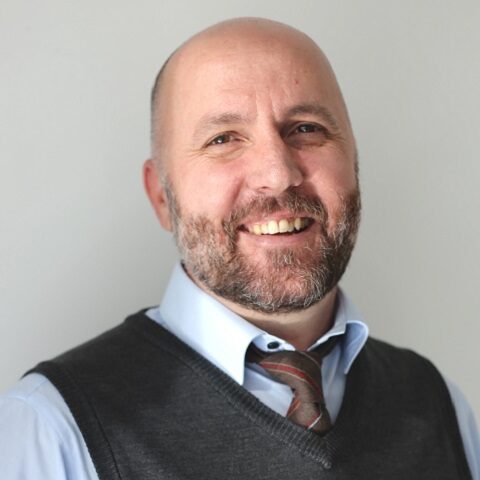3 minutes read
How can social good organisations continue to keep our collective eyes on impact? How can we use the strengths that we have to continue finding new ways to support children around the world to realise their right to live healthy and fulfilling lives?
This is the story of an idea, borne out of hard work and practice. This is the story of Plan International’s open-source digital birth registration approach Open Civil Registration and Vital Statistics, OpenCRVS.
Like many child rights NGOs, Plan International has spent decades supporting families to register their children, currently over 1 million children and counting. In some places, birth registration is required to enrol in school, access medicines, and underpins the application of anti-child marriage laws. It’s also important for governments to know how many citizens they have, in which places. This information can be used to plan for schools and hospitals. We also know that many current systems are slow, highly centralised, and often inaccessible to poor and remote communities. As we mapped out the problem, we realised we were designing the solution – a digital system that could encourage governments to register children closer to where the births were happening.
We did a pilot in Bangladesh. The idea had merit, and could change things significantly for the better. But how can a charity get an idea to scale? What would we need to do to give OpenCRVS a chance? What was it that we, a big International NGO, had to give up to find success?
1. Control
The idea was always bigger than one organisation. We had support in the early days from Vital Strategies and Jembi Health Systems, an innovative Africa based health systems integrator. We also had great and committed staff, and flexible funding sources that allowed us to do small scale trials.
OpenCRVS sits on a boundary between aid projects and commercial products. We soon realised that some governments didn’t want NGOs poking around in their internal sovereign systems. We also found that some donors, who had official development assistance money to spend, wanted to fund a for-purpose organisation, not necessarily a charity, but not a for profit either. So, we started to explore the idea of establishing a new organisation, a for-purpose company, with our original collaborating partners as the shareholders and in doing so, we made the switch from directly running things, to taking on a governance role – making sure the new organisation, OpenCRVS Limited, would stay true to its impact roots.
2. Brand
OpenCRVS has its own brand and web presence, as a separate entity. Plan International is now a supporter, both moral and financial. We still provide project funding and can still help our supporters and donors link up with the initiative.
3. Intellectual Property rights
A significant part of giving up control of ideas is centred on intellectual property rights. Even for an open-source product, someone still technically owns the IP. Part of the deal in making the new entity and getting the original collaborators around it as members or shareholders was to also sign over our claims to IP. In effect, making sure we are all ‘all in’ on the new organisation.
4. Income
Charities, including INGOs need to keep the money coming in to keep making a positive impact in the world. But these days when we attract money specifically for OpenCRVS, it can go directly to the new organisation to fuel the continued growth of the idea. Donors can have a direct relationship with both the organisation and the idea, and be part of its growth and success. Both the Norwegian Aid Agency and Co-Develop have since signed up to fund OpenCRVS.
What’s Next?
OpenCRVS is taking off in Africa and Asia-Pacific. We want to pursue innovative uses of the product, like enabling social protection or disaster payments – innovations we can trial and pilot (and do well as an NGO), while OpenCRVS and its organisation go about their business of changing the world too – fully fledged, independent, and awesome.
Next time you are looking for impact partners, look at what they do, but also what they are prepared to let go in pursuing impact in the world.


















